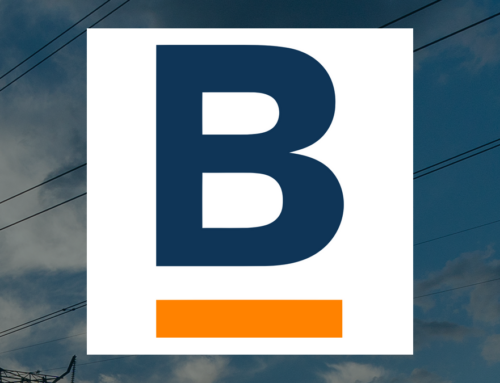Alphabet expects ‘slight headwind’ to ads business this year, executives say
April 25, 2025
President Donald Trump’s trade policies will have a negative impact on Google parent Alphabet
Alphabet, which reported stronger-than-expected revenue in its first quarter of the year, faces an online ads market that’s on edge due to concerns about how Trump’s tariffs will affect the economy and business spending. While the word “tariff” was never mentioned on Alphabet’s investor call Thursday, “macro” was mentioned several times as investors peppered company executives with questions about forward looking economic impacts amid new trade policies.
Several strategists increased their odds of a recession after Trump on April 2 announced tariffs for imports of goods into the U.S. from dozens of countries. On April 9, Trump lowered tariffs on many countries to 10% for three months.
Alphabet will likely be impacted by materials needed for technical infrastructure like data centers that it uses to power efforts in artificial intelligence. It could also see second-hand effects on advertising pull-back from budget constraints.
In Thursday’s investor call, Alphabet executives said it’s too early to tell just how much it will be impacted, but they said that there would likely be headwinds to its advertising business, particularly from the Asia–Pacific region of the world, or APAC.
“Any other factors you’re seeing in advertising verticals or regions or categories that could be showing any signs of weakness?” asked Brian Nowak of Morgan Stanley.
“We wouldn’t want to speculate about potential impacts beyond noting that the changes to the de minimis exemption will obviously cause a slight headwind to our ads business in 2025, primarily from APAC-based retailers,” said Philipp Schindler, Google’s chief business officer.
Earlier this month, Trump signed an executive order that will impose a duty representing 30% of the value or $25 per item on shipments worth less than $800 that enter the U.S., starting May 2. The duty jumps to $50 per item on June 1. In February, Trump undid a loophole that since the 1930s had allowed such packages to be imported duty-free. The change brought logistical challenges that resulted in a delay of the implementation of the policy.
Retail, which Schindler said was among the top contributors to its advertising growth in the first quarter, represents at least 21% of Google ad revenue, according to estimates by Oppenheimer & Co. Chinese discount e-commerce apps Temu and Shein, which have been big advertisers in the U.S. in recent years, are of notable concern, and Temu has already pulled way back on spending.
“We’re obviously not immune to the macro environment,” Schindler added.
“Are they starting to react to some of these macro jitters that were we’re all experiencing?” asked Ross Sandler from Barclays about brands that advertise on YouTube.
Schindler said “it’s still too early in the second quarter to have a more specific view of things.” He added that Google has “a lot of experience in managing through uncertain times.”
“If macro weakens and we see more of a slowdown, would you expect to find additional opportunities to cut back more on costs?” asked Doug Anmuth from JPMorgan.
Alphabet CFO Anat Ashkenazi said the company is still looking at spending $75 billion in capital expenditures in 2025 but stipulated “the investment level may fluctuate from quarter to quarter due to the impact of changes in the timing of deliveries and construction schedules.”
Expenditures will go toward technical infrastructure, primarily for servers, followed by data centers and networking, executives said in February.
The company is still focused on “driving efficiency and productivity throughout the organization,” Ashkenazi said on Thursday’s call, pointing to her 2024 comments, where she said the organization can “always push a little further” when it comes to cost cutting, which has included cuts to headcount and real estate.
Alphabet CEO Sundar Pichai also mentioned “efficiency” as a means of trying to keep a lean-enough company to weather potential macro storms.
“If the macro environment were to change and become more downwardly volatile, how should investors think about the investments that are must-make this year, almost fixed in nature, versus where there might be more flexibility?” asked Eric Sheridan from Goldman Sachs.
Pichai responded that the company plans to continue consolidating teams and cutting back on costs elsewhere, which he said “should help us have a more resilient organization, irrespective of macroeconomic conditions.”
— CNBC’s Jordan Novet contributed to this report.
Search
RECENT PRESS RELEASES
Related Post

![Officials power up first-of-its-kind project that could unlock low-cost energy: ‘[Will] he](https://stockwatchindex.com/wp-content/uploads/2026/01/a123c5d0f48cc9cf8cce0c0c96f4fef3-aD1Fd5-500x383.jpg)


